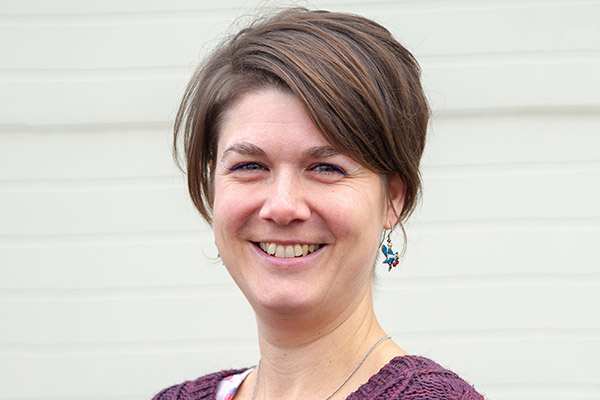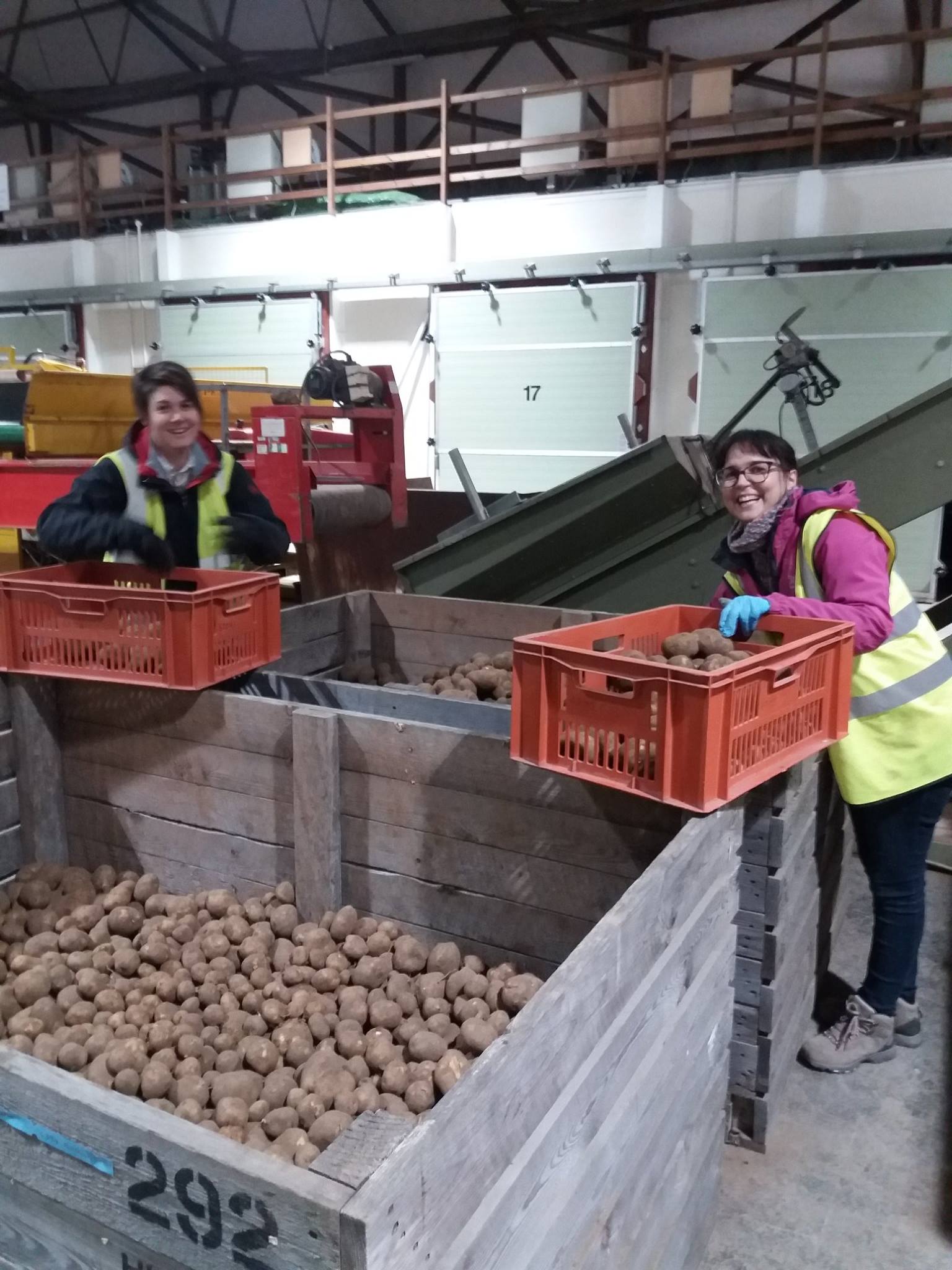Clare Hopson
Postharvest Technical Assistant
Why or how did you get into science?
When I was younger my original plan was to be an artist and I pursued this path until degree level. Not what you were expecting, right? So, we can safely say I fell into science! However, I admit to being curious by nature; I can have an interest and will have a go at most things, love the outdoors and nature and also enjoy a range of activities which worked well for art, but also works well for science!
I took a break between art college and university, doing various jobs until my landlady who worked at East Malling Research kindly recommended me for a temporary job there, which I absolutely loved! This was in top fruit breeding and I spent my days collecting flowers for pollen collection, pollinating apple trees and taking records. In my mid-twenties, when the art career didn’t work out, I started doing a lot of conservation volunteering and whilst looking for further training and career opportunities in this field, I remembered that temporary job I’d enjoyed so much at East Malling Research. I applied to my previous boss who recommended me for a temporary recorder vacancy for 3 months in strawberry breeding. The rest shall we say is history!
Did anyone in particular influence you?
I wouldn’t say anyone in particular influenced me, but I have been very fortunate to meet some absolutely lovely people in my time in conservation and science who encouraged and supported me and tried to help me get where I wanted to be. Without these people I would not be where I am today.
What is your particular field and how did you choose it, or did it choose you?
My field in research and my whole career in science has very much been one I have fallen into and then fought to stay in. This has meant that I have had experience in different fields such as plant breeding, entomology, and physiology, applied to academic research, consumer research and commercial farm processes, all of which have definitely added to the skills I can bring to the role I have today. I currently work in postharvest research, looking at extending the storage or shelf life of a range of produce and other perishable crops and the effects of recyclable or recycled content packaging and alternatives, my particular interest being how these variables affect the quality of the crops they wish to preserve.
What advice would you give to other young women reading this who are thinking of pursuing a career in science?
Go for it! If you are curious about the world we live in and have a love of learning this may be the career for you!
- Take the opportunities that come your way to grow your experience in different areas of research to allow you to understand what it will be like working in this area. Talk to people to find out about different roles. Be confident and make sure you pursue what is right for you.
- Set boundaries. There is always a never-ending list of ‘to dos’ in science, which means it is so easy to work very long hours, especially if you are enjoying the work and are passionate about it. BUT it is important to set yourself a cut off time (and a start time!) and to shut-off in the evenings and at weekends.
- Make sure you make the time and take the opportunity to learn new skills, attend talks and conferences and get the training you feel you need. It is never too late to learn a new skill or to retrain. I am a firm believer in this. It is very important for career progression and your own interest..
- Be interested, ask questions- there is no such thing as a stupid question!
- There is more than one route into anything. I have been extremely fortunate so far to get into science the way I have, but if A levels don’t suit you, an access course might. If attending University doesn’t work for you, the Open University may give you the flexibility you need.
- I would also say there are different roles in science to think about. Do you want to do applied or theoretical science? Have an academic or a technical role? Depending on the route taken there can be very different tasks associated with them.

Is there anything you wish you had done differently in your career so far?
Yes! There were many years when I just worked and didn’t take my own advice above, which scuppered my progression and meant that I have worked some very silly hours for a prolonged period of time. I also wish, and this still applies now, that I had more confidence in my own ability. Coming into science without the academic qualifications has led me to feel a bit of a fraud at times and a touch insignificant. However, it is always good to remember that no one knows everything, most things can be taught or learnt if there is willingness.
What does the significance of this, the International Day of Women and Girls in Science, day mean to you?
Unfortunately, if I am honest, it means that there is still a great inequality in the numbers of women getting into science as we still need a day to celebrate it. However, at least we are celebrating it and encouraging more women and girls into the profession, as it is a great one to be in!
Link to NRI profile: https://www.nri.org/people/hopson-clare

